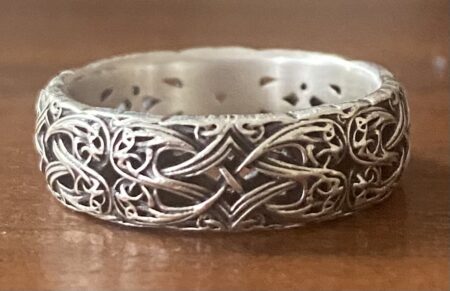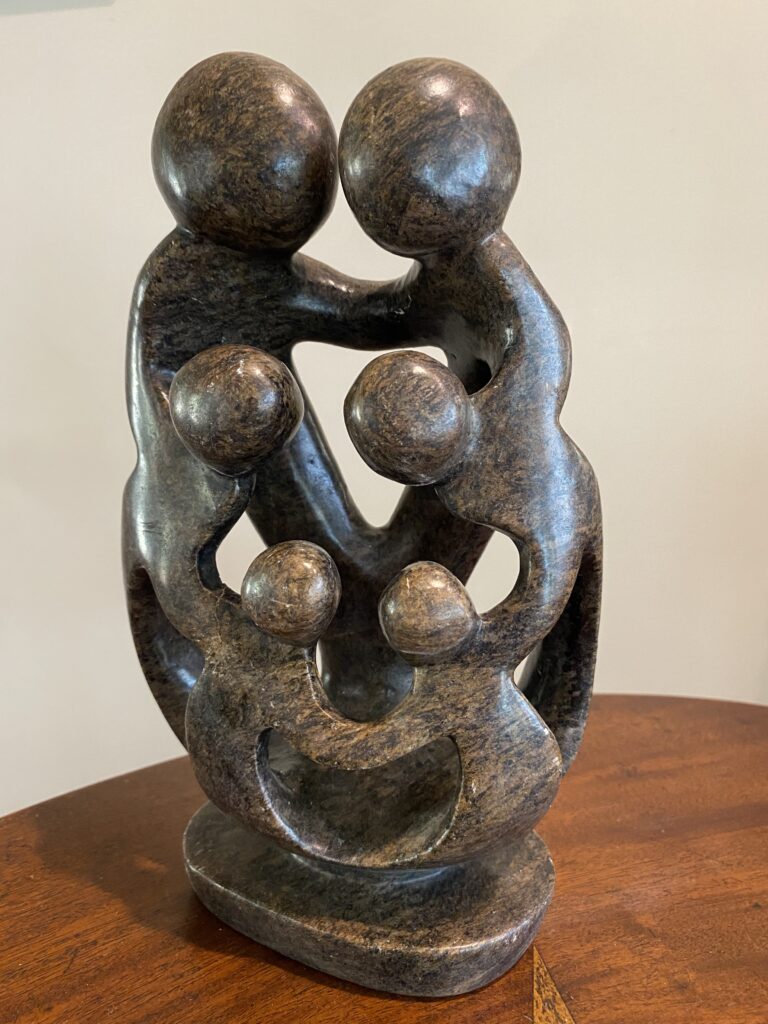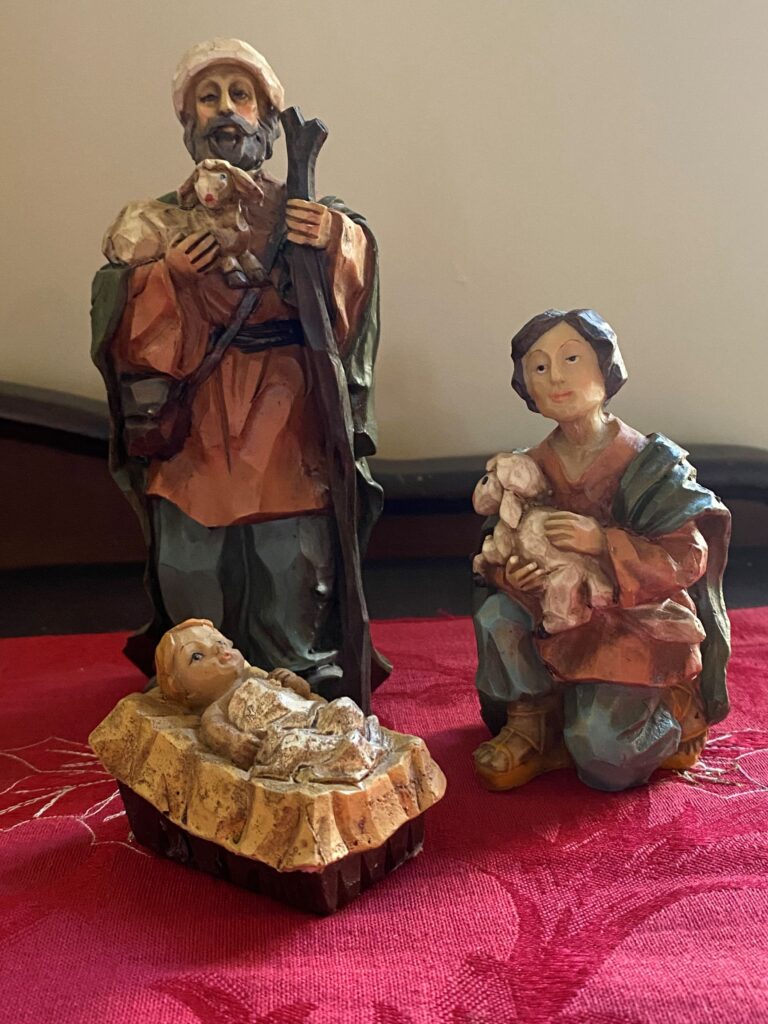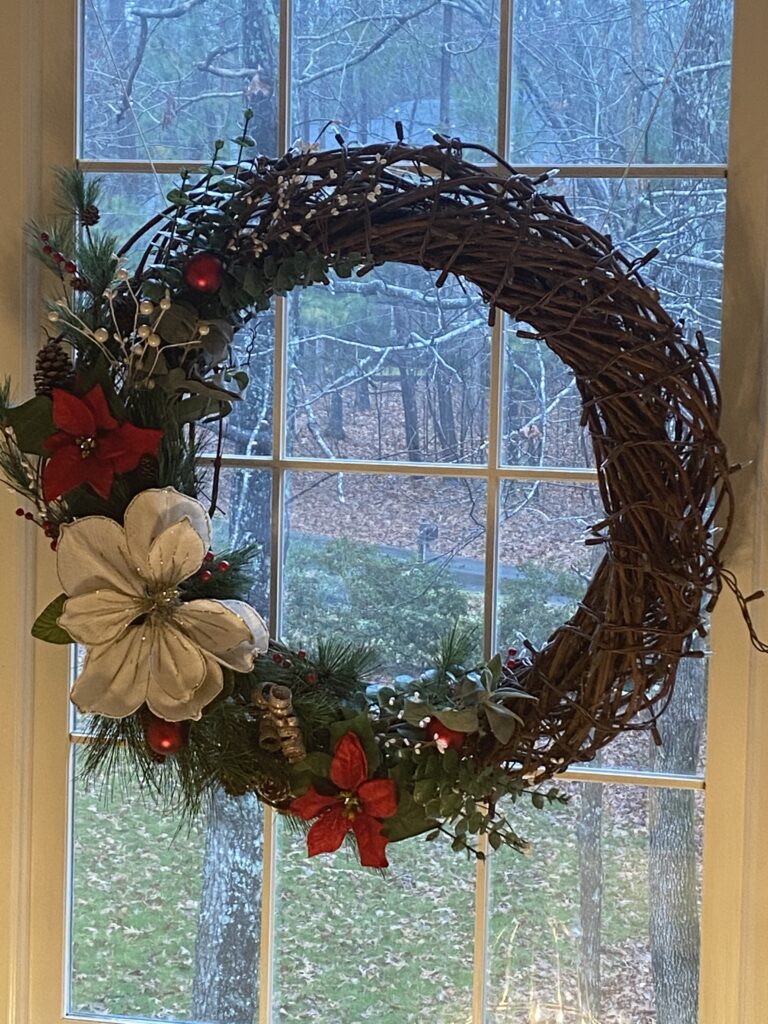
When my husband asked me what I’d like for Christmas, all I could think of was a ring. One I could not yet imagine. Certainly, not a ring marked by beauty or power, but one of purpose.
In October, I attended a worship conference in western North Carolina where the Smokey Mountains blazed with the vibrant artistry of fall. Such breathtaking beauty that reflecting the majesty of creation. The conference proved even more enriching, a time of experiencing the Holy Spirit lead the attendees in worship that flowed seamlessly between music and prayer.
During the final session, the conference leader challenged us to make this style of devoted worship a regular practice in our lives. Seeming intentionally coy, he smiled slightly and hinted that perhaps some of us would choose to follow the practice of Count Zinzendorf in wearing a ring to symbolize their true devotion and commitment to God. Like a wedding band, it would signify a vow to remain faithful to The Lord of the Ring, and serve as a constant reminder to remain faithful in worship and passionate in prayer.
I was intrigued! I searched to learn more about this Count Zinzendorf. I discovered he was born into a noble family in Saxony in 1700. But his interest in spiritual matters far outweighed any expectations for royal service. As a young university student, he, along with four friends, solemnly covenanted to follow a three-part Rule of Life: to be kind to all people, be true to Christ, and to send the gospel to the world. They each marked the vow with a ring they promised to wear for life.
This fellowship of friends, based on disciplines of prayer, worship, and the reading and applying of Scripture, went on to spearhead thriving Christian communities and the first missionary movement of the Reformation. Their commitment to embrace deep spirituality led to a Moravian Pentecost in 1727, followed soon after by a continuous 24-7 prayer watch that lasted for over one hundred years, and whose impact reverberated around the world.
How could I not be inspired by Zinzendorf and the communities so committed to passionate discipleship? And yet, how could I possibly compare to the spiritually vibrant lives of men and women such as these? I wrestle too often with faltering faith and doubt and weakness to enter their ranks. Surely, I could not be considered fit to wear a ring signifying such faithful devotion.
Though able to wholeheartedly commit to the three objectives of devotion to Christ, kindness to all, and spreading of the gospel, my frailties are all too apparent. Like Frodo in JRR Tolkien’s novel, The Lord of the Rings, I can humbly say, “I will take the ring, but I do not know the way.” Yet, despite my known limitations, I earnestly long to embrace the vow and be tangibly reminded to live a life devoted to prayer and worship.
And so, I dared to search for a possible ring. I found myself drawn to Celtic trinity rings with their continuous, intertwined lines symbolizing the unity of the Father, Son, and Holy Spirit. I showed my favorite choice to my husband, he ordered it, and the gift was sealed.
The week following Christmas carried an unexpected share of struggles, and I’m ashamed to say I did not reflect stability of faith nor intentional kindness very well. In the midst of the emotional swirl, I became increasingly conscious of the ring on my hand and my failing to live what it stood for. On two occasions, I yanked it off in frustration and set it aside. I felt my heart needed humble alignment before I could truly wear it.
And there came the realization. The Holy Spirit was already using the ring to guide me to self-examination, and remind me that God’s love supersedes my shortcomings. The ring is a symbol of my commitment to live devoted to God and to advance His Kingdom, even in my weakness and stumbling. Yet it also serves as a reminder of who He is as forever faithful in His love and grace. And so, I entered a place of both wrestling and sweet surrender that in the end proved good.
If I lived in the early 18th century, I would have eagerly sought to experience the diaspora of communities that sprang from Zinzendorf’s Rule of Life. Oh, to have experienced the spiritual passion that spread like wildfire during that time. Yet, the same Holy Spirit works with the same power and truth in men and women today. Yes, also in me.
If wearing a symbolic ring stands as a constant reminder to be true to Jesus, kind to all, and to share the gospel, then let it serve its purpose. Even during times of struggle and suffering, Jesus is Lord of my life and the Lord of this ring. In faith, I will boldly take and wear it. May it constantly remind me to love God and serve others well. May it continually call me to pray and worship with passion.
Truly, there is no better time than the present to humbly join in the fellowship of the ring.










